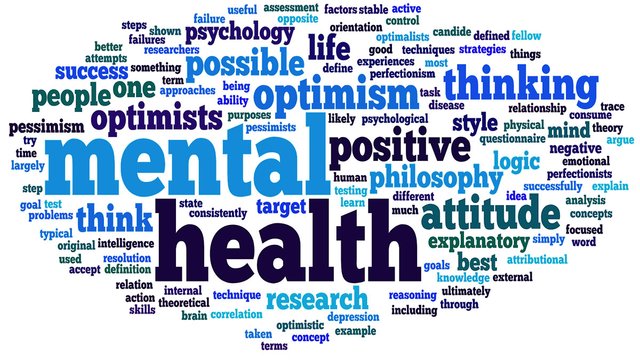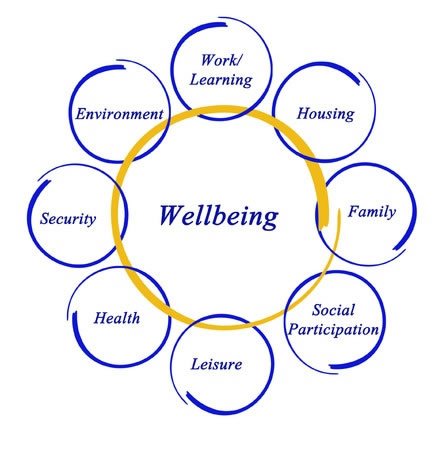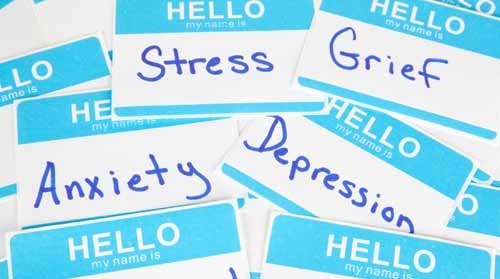---- Mental Health - Complacency From Doctors (GP's) ----

Mental Health
There is no doubt there is a stigma surrounding mental health, many people believe that treatment of mental health is for "crazy people". There are also fears of speaking about mental health issues will lead to being committed into "crazy houses" and being fed a large range of pharmaceuticals that will keep you docile, incoherent and dribbling out one side of your mouth. This is a concept which is still considerably hard to shake when discussing mental health and taking steps to get help when things in life get hard and affect our day to day lives.
There are a number of life impacts which can have adverse effects on mental health, such as work/school stress, family issues, intimate relationship problems/break ups, bullying, various forms of abuse, etc. Repeated and extended exposure to somewhat "normal" life events and interactions can grip us and bring us to out knees emotionally and psychologically. This is something which has been recognized in Australia for some time now with the "Better Access" initiative being part of the medicare healthcare plan for some time.

Mental Health
What this means is that each Australian citizen is eligible to have a "mental health plan" put in place should they feel that their mental health has been impacted in some way. What this involves is seeing your doctor GP, expressing a need for mental health treatment or displaying signs of needing mental health treatment , in which case the doctor should be suggesting a mental health check to start the process. This will result in gaining access to a psychologist for an initial 6 sessions, with an additional 4 sessions if the psychologist believes it is needed. More data on this process : 3 ways to access mental health services under Medicare in Australia .
This is all well and good on paper, but in practice it seems that it can be considerably more difficult than one may first think. To begin with we have a person who is mentally and emotionally fragile, a large social stigma associated with mental health, a lack of awareness that there are services available to help them. That's quite a few hurdles to begin with let alone having the "gate keepers" to these services being complacent with their duty of care when patients present with symptoms or ask for these services.

Mental Health
Anecdotal Evidence Time
Recently i spoke to a friend who was having going through particular negative experiences and was struggling with day to day life, we had discussed this a number of times over a few months and it was clear they had been struggling with this for a considerable amount of time without resolve. Being trained in psych and interacting with these services in the past, i suggested seeing a doctor GP, getting onto a mental health plan and seeing a psychologist to help them get through this rough patch.
After outlining much of what was mentioned in the beginning of the article, they agreed they would benefit from the better access initiative and made plans to begin the process. Unfortunately things did not go well at all when they interacted with the doctor at the clinic.
The doctor in question refuted the "better access" initiative, saying that the patient would have to cover the costs as it was not covered by medicare. When the patient rebutted with the data presented above and said a friend had told them they could access a psychologist based on the program, the doctor taunted "well maybe your friend should be helping you then". However, the doctor proceeded to investigate the symptoms further and questioned the patient on their feelings and actions regarding their condition, when the patient voiced their concern about using alcohol as a coping mechanism the doctor reprimanded the patient for their actions. The end result was the patient was not given a referral to a psychologist or put on a mental health plan and was promptly pushed out the door.

Angry Doctor
This friend came to me right after the experience and was a complete wreck. Their fears had come to fruition, exposing themselves and being vulnerable only to have it thrown in their face and be told they cant/wont be helped and sent on their way. this action was considerably detrimental to their sense of being, particularly when they had to overcome the stigma surrounding mental health in the first place.
After hearing the story, we marched ourselves back up to the clinic to sort it all out, despite my friends reluctance due to their experience the first time round. After some back and forth with the receptionist we came away with another appointment with a different doctor the next day. I myself attended this meeting to ensure it was not a replay of what had happened the day before. This doctor was much better to interact with, however, i do suspect that they would have been told about the previous incident and been prepared for this particular interaction. The end result this time around was attaining a "mental health plan" and a referral to see a psychologist.
Back To The Subject
These kinds of stories have emerged frequently enough to cause alarm, the fact is that appropriate interaction for people who are expressing 'concern for' or 'symptoms of' mental health issues is a specialty field. It requires a specialist to interact with patients at this level, treat, apply interventions, etc. the consequence of complacency dealing with this issue could have extremely adverse effects.
What if the patient was suicidal and was reaching out one last time before attempting to end their life? What if the patient was having trouble with family issues and was at the brink of murder/suicide? There are so many scenarios which can be playing out in someones lives where they need to reach out and get help, the aforementioned behavior only exacerbates and perpetuates the problem.
GP Doctors are just that "General Practitioners", if a patient presents with symptoms beyond their expertise of "general practice" it is standard procedure to refer to specialists, this is to protect both patient and physician... simply put GP doctors are the conduit to more focused treatment should it be needed. This is not a position to be taken lightly or become complacent in, they literally have peoples lives in their hands and it should most certainly be taken seriously.
So What Can We Do?

I Dont Know
Be Informed - As stated GP = General Practitioner, a doctor could be complacent, ignorant, maybe not "believe" in psychological consults, hell... they could even just be having a bad day.
"Better Access" - Being able to identify the act or initiative can help the GP "find" the data to apply it to your file and make it part of your treatment.
BULK BILLING - It is important to state that you want the psychologist to "bulk bill", this means you will not have to make any outlay when seeing the psychologist, medicare will cover the cost completely. Some psychologists want payment up front and medicare can cover the cost as a rebate system or if the psychologists fee is higher than the allowed amount covered by medicare its up to you to cover the difference.
Only Psychologists - Many use the term "counseling" this is a different field and is NOT part of the medicare system, patients can only interact with psychologists in this capacity.
Support Network - Is the people we can lean on in times of need, be it friends , family, social workers, ect. having people who can help, support , encourage, etc. during these hard times. Even just having someone to go with you and sit in the waiting room can be all the support that is needed.
Dont Give Up - If your interaction with one doctor is unsatisfactory, go to another, and another, and another. The act is in place for a reason, to help those in need of these services to get the treatment they need.
Dont Put It Off - If mental health is a concern dont put it off. The longer it is left untreated the more detrimental the effects can be long term and the more difficult it will be to counter poor coping mechanisms.
Conclusion
We are all human, we have good days and bad days, this can be true of doctors too. Maybe the incidences i have been informed of have been just that, bad days. However, the fact of the matter is that doctors have peoples lives in their hands and, as such, they should hold themselves to a higher standard than many other positions. This is why they have a Hippocratic Oath which is a declaration of their commitment to their profession, their patients, and humanity. There is absolutely no way that treating patients presenting with mental health concerns in this manner constitutes adherence to the oath taken.
Unfortunately, there is still a considerable amount of stigma associated with mental health, from the extremity of needing to be "clinically insane" to need to see a psychologist, to plain old denial of mental illnesses existing n the first place. When this attitude spills over into the medical industry which is designed to help people, it only causes further complications for the patient. What this means for those seeking assistance is that the road can be littered with obstacles, and anyone who has experienced depression and/or anxiety (high comorbidity) can tell you that even the smallest obstacle can mean disaster for motivation.
The long and short is that the chips are most certainly stacked against people with mental health issues from the get go, this has been the focus of many organizations and movements such as R U OK?. To start normalizing regular mental health checks, just as frequently as we have (or at least suggest) physical health checks. Talking to one another about mental health issues and being comfortable within these discussions. If you see signs of mental health issues in others, start a conversation and ask are you ok?
I really hope that we see a shift in how we perceive and treat mental health in the near future. As of right now i most certainly feel we have a long way to go. Further, having physicians treating patients poorly and denying them services which are available(and entitled to) only reiterates the need for better training for doctors (removal of personal bias) and greater public awareness of the options available. For now we will have to continue to do our best and be vigilant in the face of adversity when considering mental health.
Australian Mental Health Helplines
beyondblue aims to increase awareness of depression and anxiety and reduce stigma. Call 1300 22 4636, 24 hours / 7 days a week.
Blue Knot Foundation Helpline (formerly ASCA Professional Support Line) provides help, information, support or referral for adult survivors of childhood trauma and abuse, their partners, family and friends, health professionals and anyone in the workplace working with people who have experienced childhood trauma and abuse. Call 1300 657 380, 9am-5pm AEST / 7 days a week.
Butterfly Foundation's National Helpline, ED HOPE, is a free, confidential service that provides information, counselling and treatment referral for people with eating disorders, and body image and related issues. Call 1800 33 4673, 8am – midnight AEST / 7 days a week.
eheadspace provides mental health and wellbeing support, information and services to young people aged 12 to 25 years and their families. Call 1800 650 890.
Kids Helpline is Australia’s only free 24/7 confidential and private counseling service specifically for children and young people aged 5 to 25. Call 1800 55 1800.
Lifeline provides 24-hour crisis counseling, support groups and suicide prevention services. Call 13 11 14.
MensLine Australia is a professional telephone and online support and information service for Australian men. Call 1300 78 99 78, 24 hours / 7 days a week.
The MindSpot Clinic is a free telephone and online service for people with stress, worry, anxiety, low mood or depression. They provide online assessment and treatment for anxiety and depression. The MindSpot Clinic does not provide an emergency or instant response service. Call 1800 61 44 34 AEST, 8am-8pm (Mon-Fri), 8am-6pm (Sat).
QLife provides nationwide telephone and web-based services to support lesbian, gay, bisexual, transgender and intersex (LGBTI) people of all ages. Call 1800 184 527, 3pm-12am (midnight) AEST / 7 days a week.
PANDA (Perinatal Anxiety & Depression Australia) provides a national telephone information, counselling and referral service staffed by trained volunteers, professional counsellors and supervising staff. Many helpline counsellors have had their own experience of perinatal depression or anxiety. Call 1300 726 306, 9am-7:30pm AEST (Mon-Fri).
SANE Australia provides support, training and education enabling those with a mental illness to lead a better life. Call 1800 18 7263, 9am-5pm AEST (Mon-Fri).
Suicide Call Back Service provides 24/7 support if you or someone you know is feeling suicidal. Call 1300 659 467.
Veterans and Veterans Families Counselling Service (VVCS) provides 24/7 free and confidential, nationwide counselling and support for war and service-related mental health conditions, such as post-traumatic stress disorder (PTSD), anxiety, depression, sleep disturbance and anger. Call 1800 011 046.
ǝɹǝɥ sɐʍ ɹoʇɐɹnƆ pɐW ǝɥ┴
thanks fo the support
very helpful article :)
thanks :)